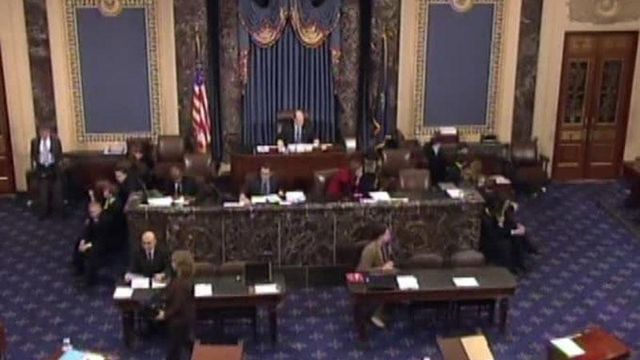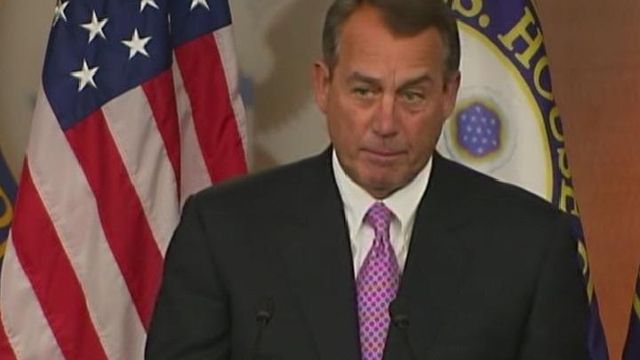Payroll tax deadlock ends with voters perturbed
After House Republicans caved to demands by President Barack Obama, congressional Democrats and fellow Republicans Thursday to approve short-term renewal of payroll tax cuts for all workers, both politicians and those they represent agreed that the stalemate and its solution were examples of the partisan bickering that has come to characterize Congress in recent years.
Posted — Updated"It is an election year coming up, so there is a lot of posturing," said David McClennan, professor of political science at Raleigh's William Peace University.
Even Speaker John Boehner acknowledged the Republican hold out for a longer-term solution "may not have been politically the smartest thing in the world."
The Ohio Republican abruptly changed course Thursday afternoon and dropped demands for immediate holiday season talks with the Senate on a full-year measure that all sides said they want. Senate leaders had insisted on the two-month extension to buy time for talks next year.
The House and Senate plan to act on the two-month extension Friday.
House Republicans were under fire from their constituents and GOP establishment figures incensed that they would risk losing the tax cut issue to Democrats at the dawn of the 2012 presidential and congressional election year. House GOP arguments about the legislative process and the "uncertainty" a two-month extension would mean for business were unpersuasive.
Pam Andes, owner of United Pest Management, was relieved to hear about even a short-term extension.
"We are paying a lot in payroll taxes, and we would have to cut hours on our guys if our taxes go to high," she said as she watched her children ice skate in downtown Raleigh Thursday evening.
The compromise legislation would renew the tax break through Feb. 29, along with jobless benefits and a "fix" to prevent doctors from absorbing a big cut in Medicare payments. Its $33 billion cost would be covered by an increased fee on mortgages backed by Fannie Mae, and Freddie Mac.
Raleigh resident Chris Moody was disappointed – both with the outcome and the partisanship that preceded it.
"I can not imagine it any worse," he said. "The government spends way too much money, and the tax code is a mess."
McClennan said communication in Washington is also a mess.
"I think it is causing most Americans to shake their heads and say, 'Hold on. They are mesing with my paycheck," he said.
The developments were a clear win for Obama. The payroll tax cut was the centerpiece of his three-month campaign-style drive for jobs legislation that seems to have contributed to an uptick in his poll numbers — and taken a toll on those of congressional Republicans.
"Because of this agreement, every working American will keep his or her tax cut - about $1,000 for the average family," Obama said in a statement. "That's about $40 in every paycheck. And when Congress returns, I urge them to keep working to reach an agreement that will extend this tax cut and unemployment insurance for all of 2012 without drama or delay."
If the cuts had expired as scheduled, 160 million workers would have seen a 2 percentage point increase in their Social Security taxes. And up to 2 million people without jobs for six months would start losing unemployment benefits averaging $300 a week.
Obama, Republicans and congressional Democrats all said they preferred a one-year extension but the politics of achieving that eluded them.
McClennan said communication is the only way to get to agreement.
"They work in the same town. It is not hard to talk," he said.
All parties have pledged to start working on that in January. McClennan worries that the 2012 elections mean the posturing won't quiet down for yet another calendar year.
• Credits
Copyright 2024 by WRAL.com and the Associated Press. All rights reserved. This material may not be published, broadcast, rewritten or redistributed.






